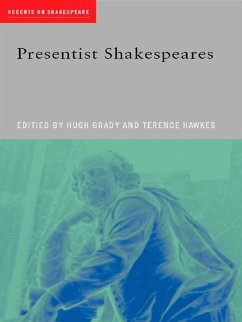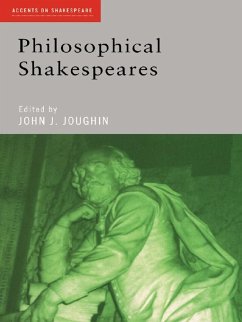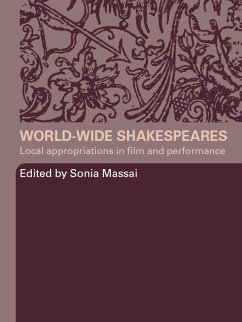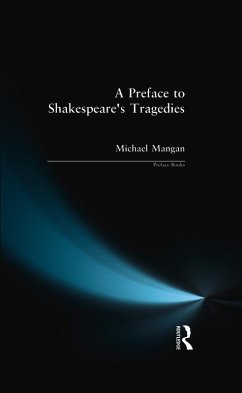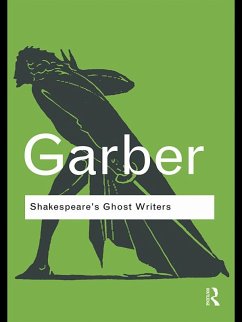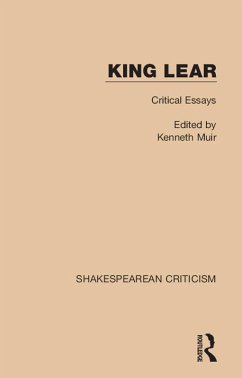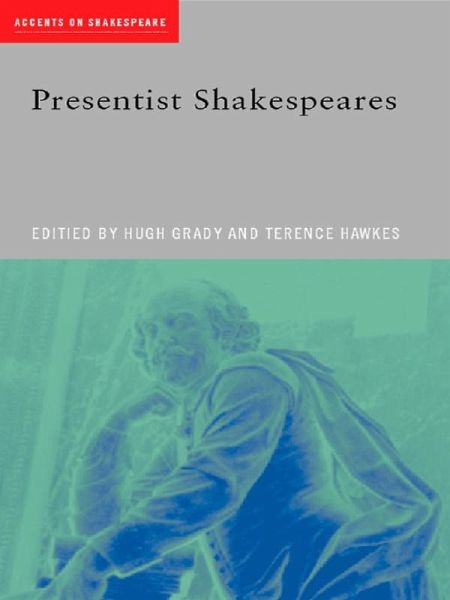
Presentist Shakespeares (eBook, ePUB)
Versandkostenfrei!
Sofort per Download lieferbar
39,95 €
inkl. MwSt.
Weitere Ausgaben:

PAYBACK Punkte
20 °P sammeln!
Presentist Shakespeares is the first extended study of the principles and practice of 'presentism', a critical movement that takes account of the never-ending dialogue between past and present.In this bold and consistently thought-provoking collection of presentist readings, the contributors: argue that the ironies generated by our involvement in time are a fruitful, necessary and an unavoidable aspect of any text's being, and that presentism allows us to engage with them more fully and productively demonstrate how these ironies can function as agents of change, flowing unstoppably back into t...
Presentist Shakespeares is the first extended study of the principles and practice of 'presentism', a critical movement that takes account of the never-ending dialogue between past and present.
In this bold and consistently thought-provoking collection of presentist readings, the contributors:
Presentist criticism is an open-ended and on-going project, located at a particularly interesting and demanding juncture in modern Shakespeare studies. At this crucial point, then, Presentist Shakespeares is a compelling collection of readings by a distinguished team of authors, but it is also much more: it is a landmark, which reflects, develops and even rejoices in the intedeterminacy of the field.
Contributors include: Catherine Belsey, Michael Bristol, Linda Charnes, John Drakakis, Ewan Fernie, Evelyn Gajowski, Hugh Grady, Terence Hawkes and Kiernan Ryan.
In this bold and consistently thought-provoking collection of presentist readings, the contributors:
- argue that the ironies generated by our involvement in time are a fruitful, necessary and an unavoidable aspect of any text's being, and that presentism allows us to engage with them more fully and productively
- demonstrate how these ironies can function as agents of change, flowing unstoppably back into the events of the past, colouring how we perceive them and modifying our sense of what they signify
- show that a critic's inability to step beyond time and specifically the present does not, as has been argued elsewhere, 'contaminate' readings of Shakespeare's plays, but rather points to shades of implication suddenly available here and now within the wide range of plays examined
- suggest that presentism might not merely challenge or expand our sense of what Shakespeare's plays are able to tell us, but may in fact offer the only effective purchase on these texts that is available to us.
Presentist criticism is an open-ended and on-going project, located at a particularly interesting and demanding juncture in modern Shakespeare studies. At this crucial point, then, Presentist Shakespeares is a compelling collection of readings by a distinguished team of authors, but it is also much more: it is a landmark, which reflects, develops and even rejoices in the intedeterminacy of the field.
Contributors include: Catherine Belsey, Michael Bristol, Linda Charnes, John Drakakis, Ewan Fernie, Evelyn Gajowski, Hugh Grady, Terence Hawkes and Kiernan Ryan.
Dieser Download kann aus rechtlichen Gründen nur mit Rechnungsadresse in A, B, BG, CY, CZ, D, DK, EW, E, FIN, F, GR, HR, H, IRL, I, LT, L, LR, M, NL, PL, P, R, S, SLO, SK ausgeliefert werden.




